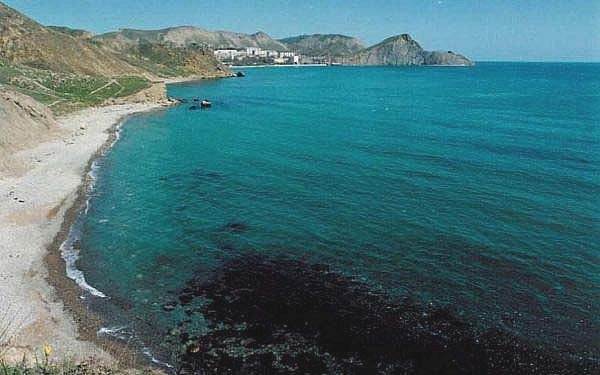

By Susan D. Harris
While many consider Jerusalem the center of the world, the Red Sea might easily claim the title for second place, as countries from around the world are stumbling over each other to gain (or regain) a foothold on the historic waterway. As we look at recent developments, the question becomes, “are the super-rich going to have one hell of a time partying up and down the sun-baked Red Sea coastline and bathing in the turquoise sea, or will they instead have a front row seat to a treacherous waterway that seems to be bubbling and building up enough pressure to facilitate WWIII?”
Let us review the players in this play – a play whose ending has yet to be written.
The United States has increased its presence there after an onslaught of attacks on U.S. warships in October 2016. Coming from the Yemeni coastline, the attacks on the warships as well as other shipping vessels in the Bab el-Mandeb strait (which connects the Gulf of Aden to the Red Sea as part of the strategic Suez Canal shipping route) exposed a need for greater security in the area.
Earlier in 2016, both Saudi Arabia and China cut deals with the Republic of Djibouti to establish military bases in that region, Djibouti being strategic to controlling access to both the Red Sea and the Indian Ocean.
Sudanese president Omar al-Bashir recently met with Russian president Putin to discuss Russia setting up a military base on the Red Sea and supplying Sudan with military weapons. Further, Bashir “appealed to Putin” for “protection from aggressive U.S. actions” and offered to make Sudan “Russia’s key to Africa” in developing ties on the continent.
Iran’s presence in the Red Sea country of Yemen has been a little harder to piece together – at least from the mangled weaponry they’re leaving behind. In an unprecedented act, the Pentagon put parts of recovered weaponry on display last month as part of President Trump’s “harder line toward[] Tehran.” Iran has apparently been supplying weapons to the Houthi militia in Yemen, violating U.N. resolutions. (Saudi Arabia and the United Arab Emirates were responsible for retrieving the pieces of weaponry, which included “an Iranian-made short-range ballistic missile fired from Yemen on Nov. 4 at King Khaled International Airport outside Saudi Arabia’s capital Riyadh.”)
And although the words “Saudi Arabia” and “Crack Down” appeared in numerous headlines throughout 2017 (They reportedly “cracked down” on expats working jobs reserved for nationals, the crown prince’s perceived opponents, Muslim Brotherhood-affiliated clerics, religious hate speech, and corruption) – it’s frolicking, sunshine, and tourist dollars the Saudis seek on the Red Sea.
Billionaire Richard Branson toured Saudi attractions last September and told the Saudis they could count on him for investment in the kingdom’s largest Red Sea tourism project to date. Reportedly, “The Red Sea project consists of 100 miles of sandy coastline and a lagoon with 50 islands[.]” Only time will tell if pandemonium or paradise will greet the moneyed traveler.
Perhaps the most important Red Sea development comes from President Recep Tayyip Erdoğan of Turkey – who’s staking his claim in the Red Sea tourism industry with a bloodless recapture of Suakin. He wants to brush the dust off its crumbled relics and make it habitable once again as the old Umrah – or pilgrimage route – for Turkish citizens. (Umrah is a pilgrimage to Mecca that does not coincide with the Hajj.) Al-Monitor reports that Turks will be able to “fly to Sudan to visit historical sites and then go to Jeddah by boat, thus reanimating an Ottoman base and the ancient Umrah route.”
Of course, there’s the larger implication that Erdoğan is reclaiming Suakin, the old Ottoman outpost, as a military base…though Erdoğan initially denied those reports.
While many people in the world were feasting on holiday meals and unwrapping Christmas presents, President Erdoğan was giving a defiant speech at Khartoum University in Sudan, where he railed against Western countries turning Suakin into a “ghost island” and ranting that they had “razed it to the ground” because it’s “in their nature.” His vow to rebuild it included a metaphor about “reincarnation” and an analogy to a shaved beard growing back more abundantly. All in all, the Sudanese “gate to Africa” seemed to stir Erdoğan’s passions deeply.
According to some, the word Suakin – meaning “dwellers,” “stillness,” or “inhabited land” – refers to the islands’ spiritual inhabitants. It is widely considered a haunted island, where any roaming cat might embody the jinn banished there by King Solomon centuries ago.
In reality, it was flesh-and-blood Sudanese slaves who often passed through Suakin, as they provided financial gain to the Ottomans and Egyptians.
Most notably, Americans first heard of Suakin in 1888, when glaring newspaper headlines read “Battle at Suakin / Arabs Utterly Routed by the Anglo-Egyptian Forces / The Insurgent Dervishes Retreat Leaving Over 400 Dead.” This was a complicated tale involving a man who had proclaimed himself the Mahdi in Sudan – Muhammad Ahmad – in an open revolt against the Egyptians and a slave trader named Osman Digna, who eventually became his devout follower. It’s a story best recounted by a British army officer who participated in the “Mahdi War” – Winston Churchill. His work, The River War: An Historical Account of the Reconquest of the Soudan (1899), is online.
It’s a history that may seem lost to the rest of the world, but it certainly is not lost in the mind of the current Turkish president. At the same time he was crafting the Sudanese Suakin deal, Erdoğan was sending more soldiers to his country’s military base in Qatar. Not long before that, he’d orchestrated the opening of a $50-million military training base in Somalia.
Egyptian journalist Imadeddin Adib summed up the regions concerns best when he wrote:
Bashir [al-Assad] is playing with fire in return for dollars. Sudan – with its Turkey madness, with Iranian plots and the Ethiopian scheme to deny water to Egypt, and Qatar’s financial gimmicks – is violating geographic and historic realities against Egypt. Sudan is offering its ports and borders for dispatching of guns and terrorists to Egypt and serving the goals of the Qatar-Turkey alliance to restore the Muslim Brotherhood to power.
Meanwhile, Israel is accusing Turkey of “developing a military and intelligence infrastructure on the Red Sea” as it worries about a “Russian-Turkish-Iranian alliance.”
In other words, the situation is a mess.
The Red Sea is mentioned a few times in the Bible. Both Jews and Christians believe that God literally parted the Red Sea to save the Israelites from mass slaughter by the Egyptian pharaoh and his army. The book of Isaiah asks:
Art thou not it which hath dried the sea, the waters of the great deep; that hath made the depths of the sea a way for the ransomed to pass over? (Isaiah 51:10)
Only the most hardened atheists could deny the irony that after thousands of years, the Red Sea still manages to hold the attention of the world. The affairs of men and nations, even the climate, could have made its importance obsolete by now. Instead, as in ancient times, there seems to be a race on to reach its trampled shores. Whether there is any divine providence in that I leave up to the reader.
Published in American Thinker:






